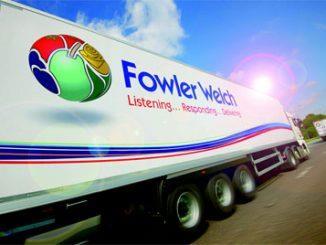
Fowler Welch is preparing for a 20% absence rate this winter in the expectation that the cold weather will push up Covid-19 infection rates once again.
The Lincolnshire-based chilled and ambient foods logistics company said it is using lessons learnt from the first wave of the virus to prepare for a second wave which the winter months are expected to bring.
Chief executive Nick Hay said: “We are planning for a 20% absence rate in any one site through the winter because if we do not get vaccines in place - and with the similarity between some cold and flu symptoms and those of Covid-19 - we are expecting it to be a very difficult winter.”
Hay said he believed the mild spring had helped keep the rates of infection down, adding “but clearly this winter could be a very, very challenging time".
Speaking on the Cold Chain Federation podcast about how the pandemic had affected the business, Hay added: “It was quite a journey. We had two weeks of unprecedented volumes when a lot of the country went into panic mode - indeed in one week in March the largest variance we had (in volumes) was 44% higher than the peak day before Christmas, so it was really, really intense.
“So it was a bit of a shock when the volumes dropped off. We had two weeks of ridiculous volumes followed by two weeks where they were 10-15% below where we would have expected to be.
“And now they have recovered to pretty steady volumes, broadly in line with what we would expect but much smoother.”
Read more
Hay attributed the smoother levels largely to the firm persuading its customer base to rationalise the number of skews and increase minimum pick size and reduce the frequency of deliveries to some retailers.
Fowler Welch is now looking toward the return of standard buying patterns. “That said we do not expect that to happen for some time - we are anticipating this metronome that we are experiencing to run for some time,” Hay warned.
He added that the nature of Fowler Welch’s business had alerted it to what was coming.
“As we import a lot from Italy and Spain we were getting first-hand information of the impact of the virus very early on and that helped us prepare.”
He added: “We also regularly have to react to weather changes – take barbeque food, for example, when the sun comes out. We can see demand jump overnight from certain suppliers with very little warning and so the business was already well grounded in reacting and responding quickly.”
Looking to the future Hay said the industry faces a significant challenge in meeting an unprecedented compliance backlog, once lockdown ends.
“There will be a backlog and how we work through that backlog of Driver CPCs and MOTs and so on is going to be the next big challenge for us all,” he warned.














